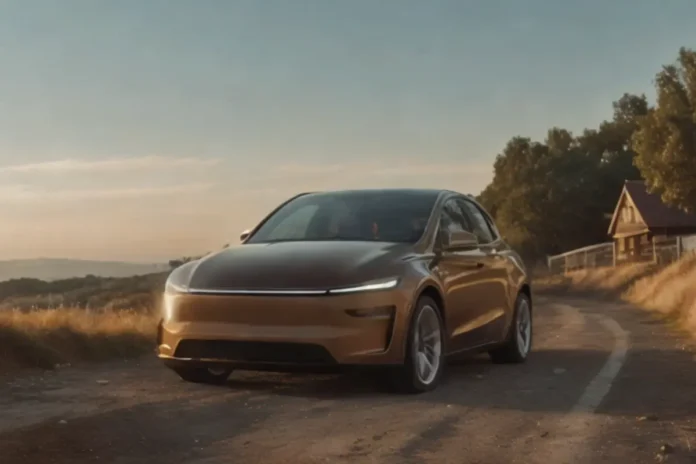The electric vehicle (EV) scene is evolving—and not always in favourable ways. In France, while pioneering brands like Renault and Citroën are redefining success with exceptional performance, industry giant Tesla appears to be stumbling. In this comprehensive analysis, we explore the changing dynamics of the French auto market, the stark contrast in sales performance, and what these trends might imply for the broader European scene, including insights relevant for the UK market.
Navigating Troubled Waters in the EV Market
Recent data indicates that the French auto market remains fragile in early 2025. Although the industry had shown incremental improvements over the previous year, the latest figures reveal a more somber picture for new car registrations. In May 2025, overall new vehicle sales in France dropped by approximately 12% compared to the same period in 2024. Even more concerning is the 19% decline in electric vehicle sales during the same period. These metrics show that almost every key performance indicator is currently in the red—a sign that the market is facing significant headwinds.
Success Stories: Renault and Citroën Leading the Charge
Amid these challenges, some brands are defying the trend. The Renault 5 E-Tech, for instance, has emerged as the best-selling electric vehicle in France, boasting nearly 13,000 registrations since the start of the year. This surge in popularity underscores Renault’s renewed focus on innovative electric mobility. Likewise, Citroën is capturing attention with its range of electrified models—particularly the dynamic e-C³ and the versatile e-C³ Aircross. Both brands are leveraging domestic strengths to outshine competitors amid tightening market conditions.

Tesla’s Decline: A Stark Contrast to European Innovators
In contrast, Tesla has encountered severe setbacks in the French market. Recent sales figures reveal a dramatic 67% drop in May alone—a plunge that has seen its flagship Model Y slipping out of the top 10. Once hailed as a market disruptor, Tesla’s dwindling performance highlights the risks of over-reliance on a one-size-fits-all strategy in a diverse and rapidly evolving market. While the overall share of electric vehicles in France remains around 16%, Tesla’s drastic decline serves as a cautionary tale for even the most iconic brands.
Sales Performance at a Glance
The following table encapsulates the current state of various manufacturers within the French electric auto segment as of May 2025:
| Manufacturer | Key Model | Approximate Sales/Trend | Market Insights |
|---|---|---|---|
| Renault | Renault 5 E-Tech | ~13,000 registrations; Leading EV | Dominates the domestic market with robust innovation and design |
| Citroën | e-C³ & e-C³ Aircross | Consistent growth; Strong sales | Gaining traction with versatile electric models |
| Tesla | Model Y | –67% decline; Out of Top 10 | Struggling to capture local demand amid rising competition |
| Chinese Brands | Various (BYD, Xpeng) | Rapid sales surge | Expanding their foothold, benefiting from competitive pricing and tech |
| Others (Audi, Skoda, Kia, Ford) | – | Stable to rising figures | Benefiting from a balanced approach to electric mobility |
Source: Market analysis data provided by AAA Data and independent market research insights available on Automotive World.
What These Trends Mean for the UK Market
While these developments are centered on France, they offer valuable lessons for the UK and other European markets. The evident drop in new vehicle registrations—especially for electric models—raises questions about consumer sentiment, government incentive adjustments, and broader economic conditions that may soon impact UK buyers. As electric mobility becomes an essential component of sustainable transport, British consumers and industry stakeholders should keep an eye on how these challenges are addressed by local and international players alike.
Key Factors Influencing EV Sales in France
Several underlying factors contribute to the current market slowdown:
- Economic Uncertainty: A modest but notable overall drop in new car purchases hints at broader consumer caution and tightening budgets.
- Government Incentives Adjustments: The reduction in ecological bonuses—from a maximum of €7,000 to around €4,000—has dampened consumer enthusiasm for electric vehicles.
- Competitive Market Dynamics: While some manufacturers are rapidly innovating and adapting, Tesla appears to be faltering, suggesting that product strategies must continuously evolve to meet local demands.
Understanding these dynamics is crucial for stakeholders across Europe, including those in the UK, as policy shifts and market trends invariably create ripple effects in other regions.
Concluding Thoughts: Embracing Change in Electric Mobility
The current French market scenario presents a compelling snapshot of both challenges and opportunities within the electric mobility sector. While major players like Tesla face hurdles and demand a strategic rethink, the success stories of Renault and Citroën underscore that resilience, innovation, and a keen focus on local needs can lead to market triumph. As countries across Europe—and indeed the UK—continue to pivot toward greener mobility solutions, the evolving competitive landscape will serve as both a testing ground and a beacon for future developments.
The contrasting fortunes of these key manufacturers remind us that disruption in the automotive industry often comes with growing pains. Yet, by embracing change and prioritizing tailored strategies, the road ahead for electric mobility can be paved with opportunities that benefit consumers, innovators, and the environment alike.
For even more in-depth market insights and automotive news, explore CommaFast’s technology section.




